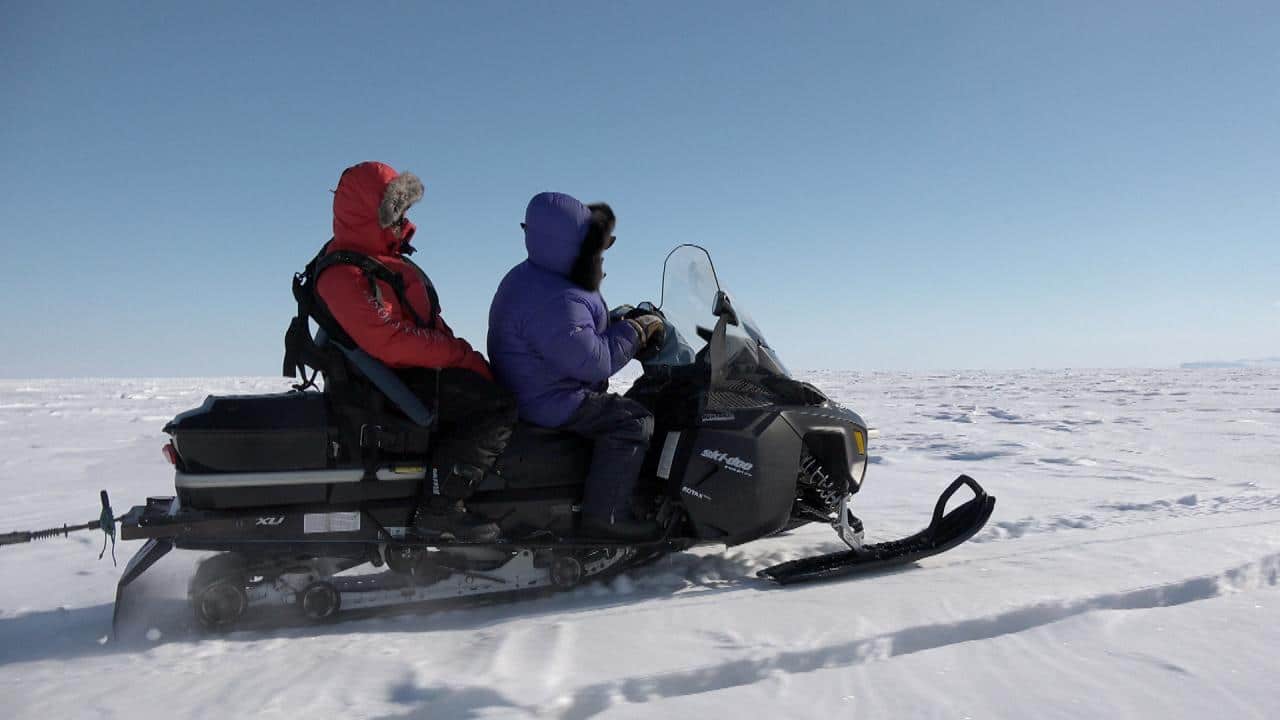Two New Titles Exploring Indigenous Pasts and Futures Added to Cinema Politica On Demand
To celebrate Indigenous History Month, Cinema Politica curated a program of movies combatting colonial narratives and embracing Indigenous knowledge. Our selections include new acquisitions of Katsitsionni Fox’s UNDER THE HUSK and Conor McNally’s ÔTÊNAW, alongside a spotlighted favourite: Zacharias Kunuk’s KIVITOO: WHAT THEY THOUGHT OF US. These movies depict everything from cosmological narratives to crushing testimonies on colonialism in modern Canada. While these films offer historical accounts, each probes into the hopes and precarities of Indigenous futures.
UNDER THE HUSK
UNDER THE HUSK follows two Mohawk girls on their journey to become Mohawk women. Friends since childhood, Kaienkwinehtha and Kasennakohe are members of the traditional community of Akwesasne on the U.S./Canada border. Together, they undertake a four-year rite of passage for adolescents, called Oheró:kon, or “under the husk.” The ceremony had been nearly extinct, a casualty of colonialism and intergenerational trauma; revived in the past decade by two traditional leaders, it has since flourished. Filmmaker Katsitsionni Fox has served as a mentor, or “auntie,” to many youth going through the passage rites. In UNDER THE HUSK, Fox shares two girls’ journey through adolescence, as they rise to the tasks of Oheró:kon, learning traditional practices such as basket making and survival skills as well as contemporary teachings about sexual health and drug and alcohol prevention. UNDER THE HUSK is a personal story of a traditional practice challenging young girls spiritually, mentally, emotionally, and physically, shaping the women they become.
ÔTÊNAW
ôtênaw is a film documenting the oral storytelling of Dwayne Donald, an educator from Treaty 6, Edmonton, Canada. Drawing from nêhiyawak philosophies, he speaks about the multilayered histories of Indigenous peoples’ presence both within and around amiskwacîwâskahikan, or what has come to be known as the city of Edmonton.
KIVITOO: WHAT THEY THOUGHT OF US
In 1962 three men died in a tragic accident in the Inuit community of Kivitoo. Only three days after their burial – when the community was still in deep mourning – the RCMP arrived and forced everyone to move to a camp in Qikittajuaaq. The RCMP promised that the community would be allowed to return to Kivitoo and that the forced relocation was only a temporary measure. When the community was finally able to return they found that their homes and all of their possessions had been burned and bulldozed. Celebrated filmmaker Zacharias Kunuk visits the old settlement of Kivitoo with the last surviving members of the camp, giving them an opportunity to have their heartbreaking story finally heard, a story of involuntary displacement that is all too common for Inuit across the Arctic.





